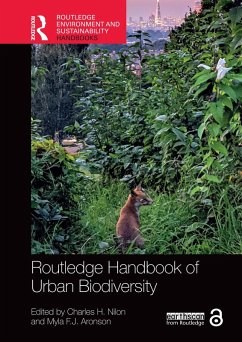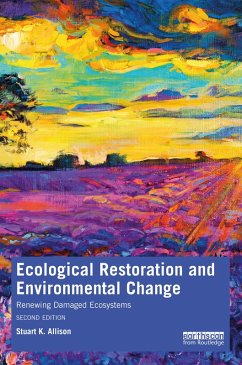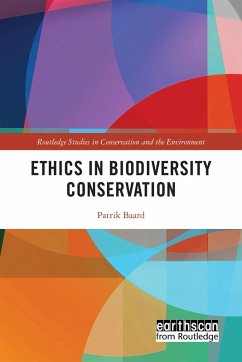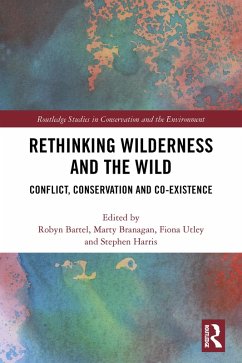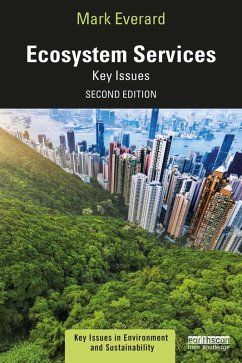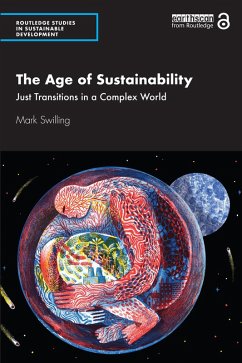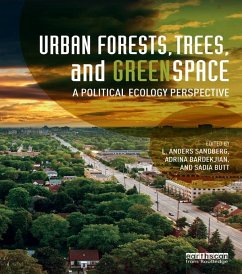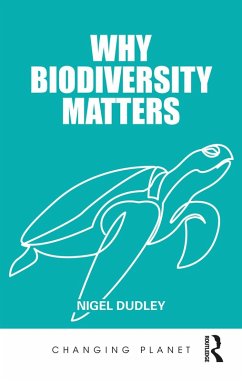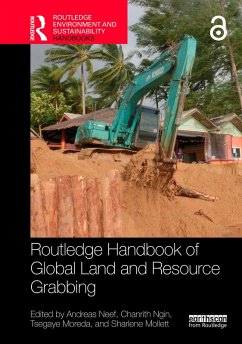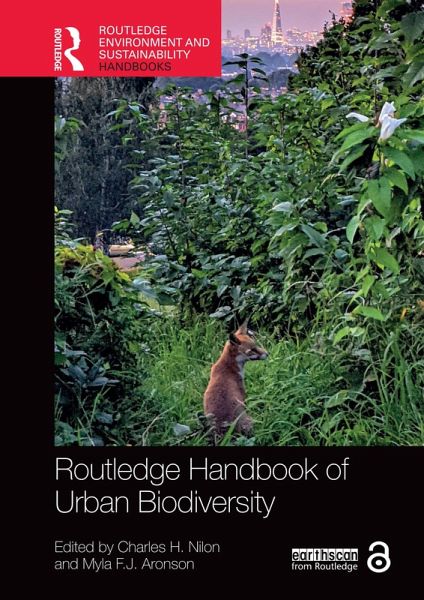
Routledge Handbook of Urban Biodiversity (eBook, ePUB)
Versandkostenfrei!
Sofort per Download lieferbar
43,95 €
inkl. MwSt.
Weitere Ausgaben:

PAYBACK Punkte
22 °P sammeln!
This handbook provides a state-of-the-art, comprehensive overview of the expanding field of urban biodiversity.The field of urban biodiversity has emerged from within the broad discipline of urban ecology in the past two decades and is now a significant field in its own right. In view of this, the Routledge Handbook of Urban Biodiversity presents a thorough treatment of this field detailing the history of urban biodiversity, theoretical foundations, current state of knowledge, and application of that knowledge. The handbook is split into four parts: Part I: Setting the Stage for Urban Biodiver...
This handbook provides a state-of-the-art, comprehensive overview of the expanding field of urban biodiversity.
The field of urban biodiversity has emerged from within the broad discipline of urban ecology in the past two decades and is now a significant field in its own right. In view of this, the Routledge Handbook of Urban Biodiversity presents a thorough treatment of this field detailing the history of urban biodiversity, theoretical foundations, current state of knowledge, and application of that knowledge. The handbook is split into four parts:
This volume contains interdisciplinary and global contributions from established and early career academics as well as professionals and practitioners, addressing two key fields in urban biodiversity: fundamental research focused on answering questions about the mechanisms explaining the distribution of species among and within cities; and applied research and work by practitioners to address concerns about urban biodiversity conservation, restoration, planning, design, and public involvement.
This handbook is essential reading for students, academics, and professionals interested and working in the fields of urban biodiversity, ecology, nature conservation, urban planning, and landscape architecture.
Chapters 15 and 22 of this book are freely available as a downloadable Open Access PDF at http://www.taylorfrancis.com under a Creative Commons Attribution-Non Commercial-No Derivatives (CC-BY-NC-ND) 4.0 license.
The field of urban biodiversity has emerged from within the broad discipline of urban ecology in the past two decades and is now a significant field in its own right. In view of this, the Routledge Handbook of Urban Biodiversity presents a thorough treatment of this field detailing the history of urban biodiversity, theoretical foundations, current state of knowledge, and application of that knowledge. The handbook is split into four parts:
- Part I: Setting the Stage for Urban Biodiversity Research and Practice
- Part II: Foundational Concepts and Theory in Urban Biodiversity Research
- Part III: Population and Community Ecology of Key Urban Taxa
- Part IV: Urban Biodiversity Practice: Management, Planning, and Design for Healthy Communities
This volume contains interdisciplinary and global contributions from established and early career academics as well as professionals and practitioners, addressing two key fields in urban biodiversity: fundamental research focused on answering questions about the mechanisms explaining the distribution of species among and within cities; and applied research and work by practitioners to address concerns about urban biodiversity conservation, restoration, planning, design, and public involvement.
This handbook is essential reading for students, academics, and professionals interested and working in the fields of urban biodiversity, ecology, nature conservation, urban planning, and landscape architecture.
Chapters 15 and 22 of this book are freely available as a downloadable Open Access PDF at http://www.taylorfrancis.com under a Creative Commons Attribution-Non Commercial-No Derivatives (CC-BY-NC-ND) 4.0 license.
Dieser Download kann aus rechtlichen Gründen nur mit Rechnungsadresse in A, B, BG, CY, CZ, D, DK, EW, E, FIN, F, GR, HR, H, IRL, I, LT, L, LR, M, NL, PL, P, R, S, SLO, SK ausgeliefert werden.




